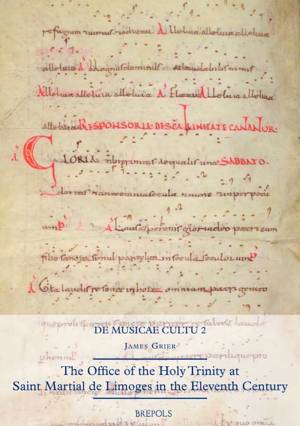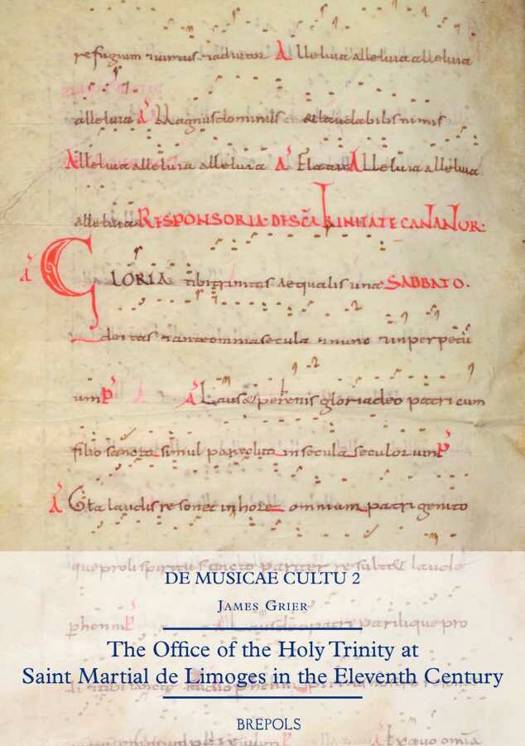
- Afhalen na 1 uur in een winkel met voorraad
- Gratis thuislevering in België vanaf € 30
- Ruim aanbod met 7 miljoen producten
- Afhalen na 1 uur in een winkel met voorraad
- Gratis thuislevering in België vanaf € 30
- Ruim aanbod met 7 miljoen producten
Zoeken
The Office of the Holy Trinity at Saint Martial of Limoges During the Eleventh Century
James Grier
Paperback | Engels
€ 68,90
+ 137 punten
Omschrijving
The Holy Trinity forms a cornerstone of Christian belief, and references to it abound in the liturgy. Every Psalm ends with the invocation of the Father, the Son and the Holy Ghost in the Doxology supplied as the final verse. But around the turn of the tenth century, clerics decided to devote the first Sunday after Pentecost to the veneration of the Trinity. They created a new liturgy for the day, and evidence suggests that Stephen, Bishop of Liege (920) revised an earlier form of the Office into the version that saw wide dissemination in the Latin West from the end of the tenth century. The abbey of Saint Martial in Limoges exhibited considerable enthusiasm for the feast and its Office beginning in the early eleventh century. Its scriptorium prepared no fewer than five copies of the Office, including four fully neumed versions between ca. 1010 and 1050, including the earliest extant transcribable copy with music in the hand of Ademar de Chabannes, musician, scribe, homilist and historian. This edition presents a critical text of the Office as it was practised at Saint Martial during the first half of the eleventh century, beginning with Ademar's version, but also considering the other witnesses from the abbey. It includes full critical and explanatory commentary with an Introduction that discusses the role of Stephen of Liege in the authorship of the Office, the witnesses from Saint Martial and their relationship to other early witnesses of the Office, and its musical and literary style.
Specificaties
Betrokkenen
- Auteur(s):
- Uitgeverij:
Inhoud
- Aantal bladzijden:
- 200
- Taal:
- Engels
Eigenschappen
- Productcode (EAN):
- 9782503574561
- Verschijningsdatum:
- 8/10/2020
- Uitvoering:
- Paperback
- Formaat:
- Trade paperback (VS)
- Afmetingen:
- 211 mm x 295 mm
- Gewicht:
- 907 g

Alleen bij Standaard Boekhandel
+ 137 punten op je klantenkaart van Standaard Boekhandel
Beoordelingen
We publiceren alleen reviews die voldoen aan de voorwaarden voor reviews. Bekijk onze voorwaarden voor reviews.











